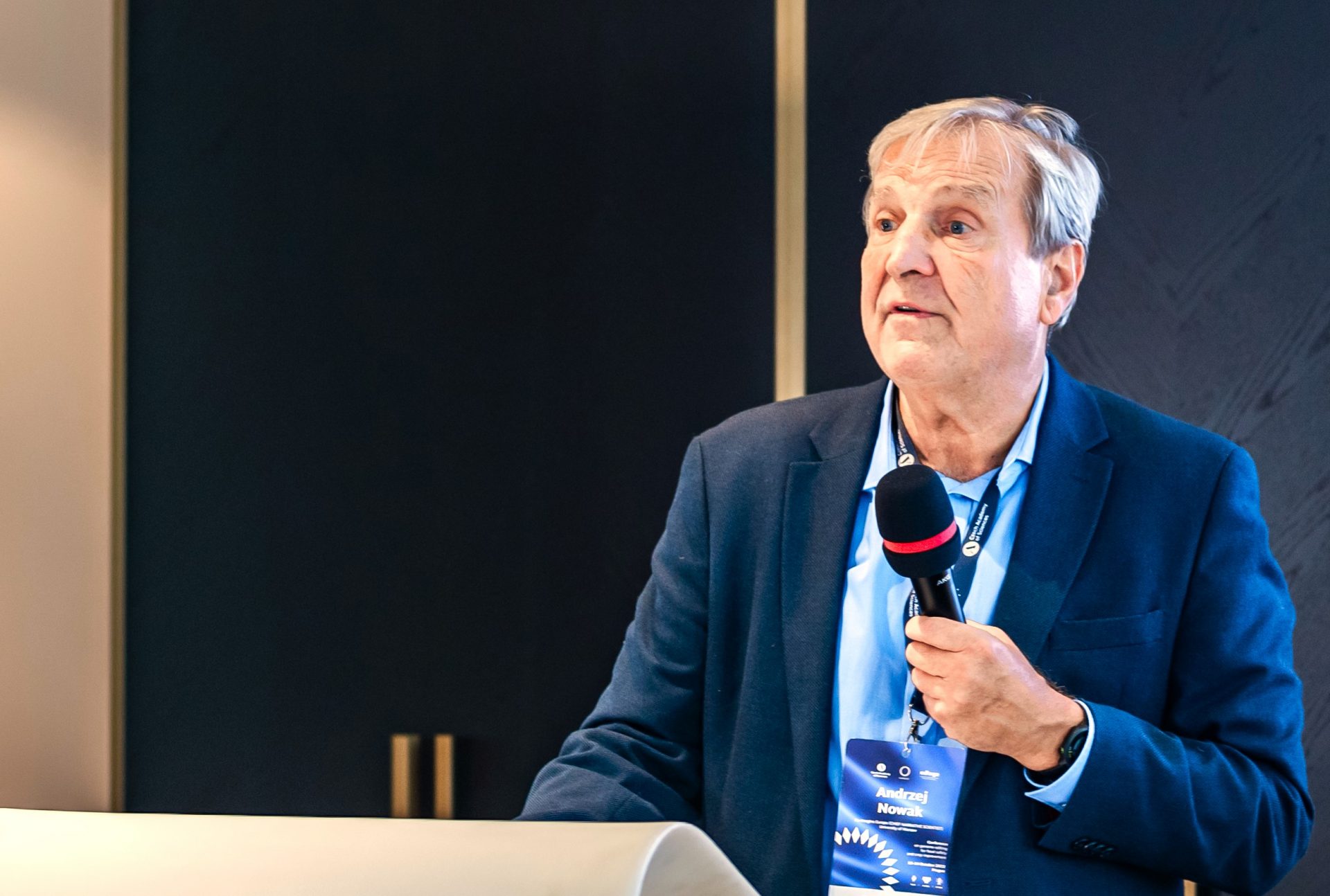Achieving food security requires building a climate-resilient, adaptable agricultural system that feeds everyone and is fair to farmers and workers. Aiming to tackle the consequences of Climate Change while maintaining the sustainability priorities outlined in the EU Commission’s Farm to Fork Strategy means developing a highly flexible agricultural system. All stakeholders need to cooperate in meeting these goals, and we must change the narratives around this polarised debate.
Professor Andrzej Nowak, Re-Imagine Europa’s Chief Narrative Scientist, underlined the need to shift the conversation on food systems to find suitable shared solutions. His speech was delivered during a lecture at the Conference on genome editing for food safety and crop improvement, held in Prague on October 14th, 2022. In his speech, he presented the results of the research on narratives conducted by Re-Imagine Europa’s Task Force on Sustainable Food Systems and Innovation (shown in the report “Beyond the Apple of Discord, Existing Narratives, and Ways Forward”).
According to Professor Nowak, sustainable food systems must be capable of feeding the whole population while fairly rewarding the farmers and preserving our environment. Food security and climate protection are two sides of the same coin: it is completely unreasonable to deal with these two matters independently.
Europe needs more sustainable food systems to cope with the dramatic changes occurring in our natural environment, economic uncertainty, and rapid societal transformation. The remarkable diversity that characterises European agriculture underlines the importance of a flexible and multidisciplinary approach based on using all the different tools that modern technology makes available.
“We need to hear the voice of all stakeholders. Diverse stakeholders will need to work together to build a wide portfolio of solutions that can match the complexity of this problem. This inclusive approach must consider the arguments of policymakers and scientists but also give a fair platform to farmers and consumers. There is no ‘silver bullet’ to fix these complex issues: only a balanced set of tools that can be adapted to the diverse approaches to agriculture present in Europe could be successful”, explained Professor Andrzej Nowak.
To develop such a diverse and inclusive approach, we need to transform the narratives that drive the debate on innovation in agriculture, restarting from the shared values that can unite both sides of this highly-polarised debate to pursue common goals. According to Professor Nowak, while those values are “hidden behind individual positions and arguments, they are common to the different sides of the debate, although the view of the best solutions may vary between the groups“.
Unearthing the values that bind Europeans together involves overcoming the apparent opposition between precaution and innovation and other simplistic dualisms that polarise the current debate. A set of common underlying goals lies behind the surface of the heated discussions characterising such debate. Once it is brought to the surface, it will serve as a starting point for a new, more polyphonic ecosystem for dialogue that would enable us to build an optimal portfolio of solutions.
Although there are different paths and priorities, the objectives pursued are the same: preserving the environment and improving the sustainability of food systems by making them more resilient and flexible, transforming agriculture to help mitigate climate change instead of contributing to it.




